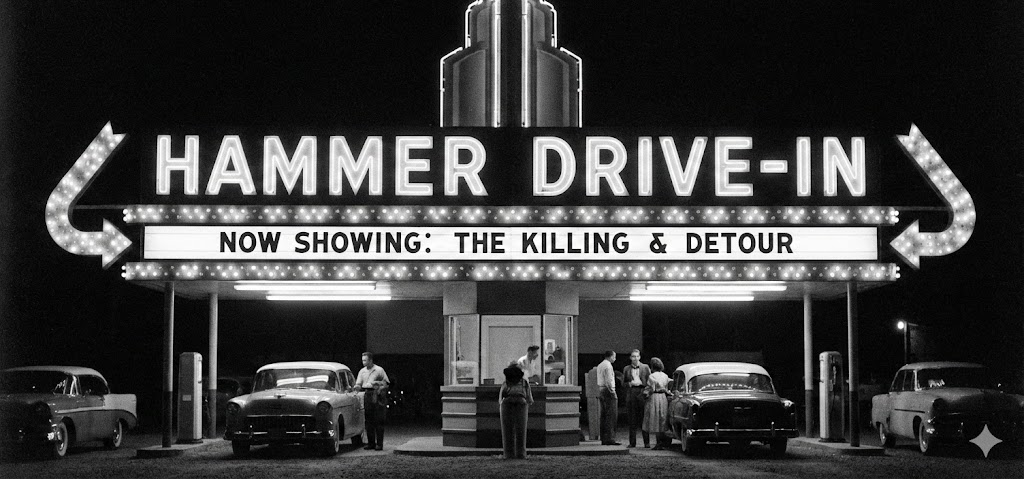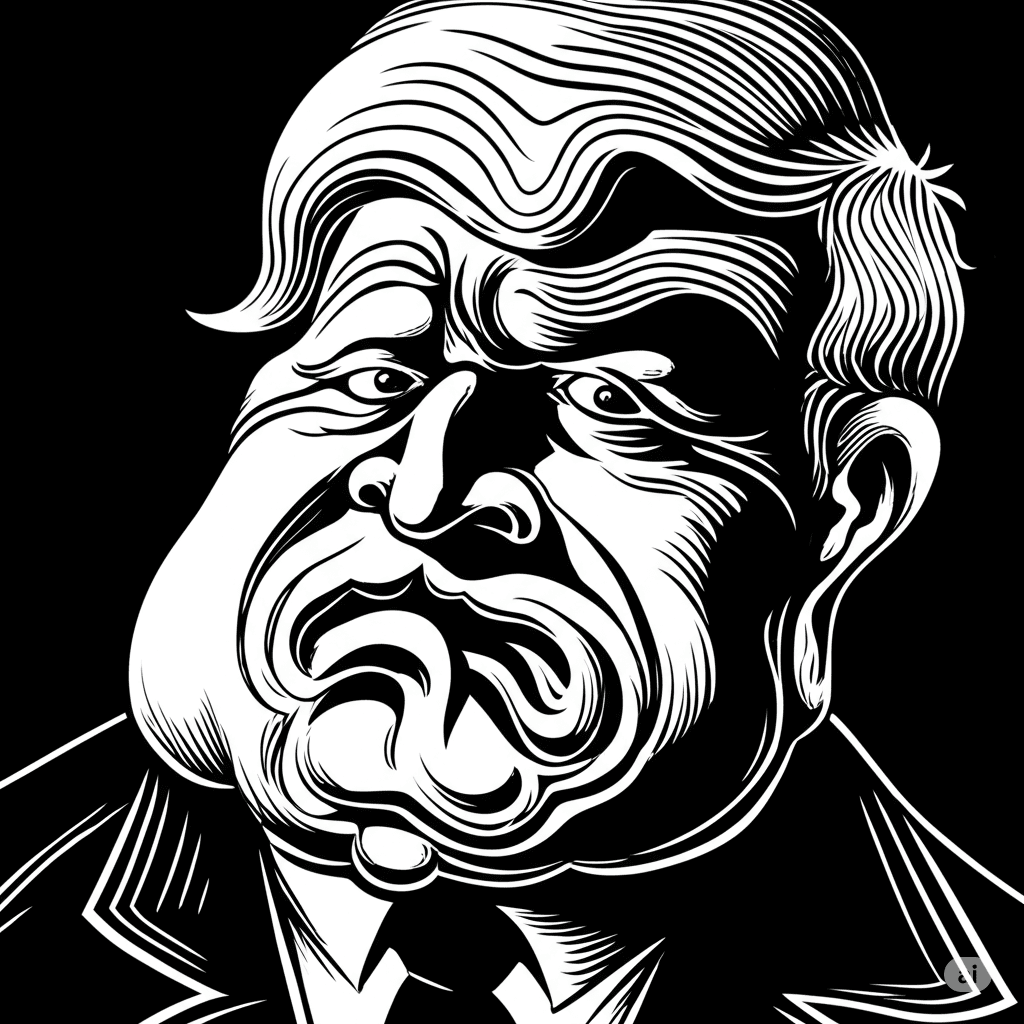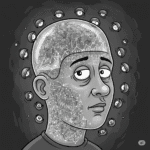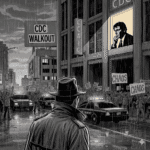A Case Study in Language Mind Pollution: by Jack Hammer
The rain’s a constant lie in this city, washing the pavement but leaving the filth right where it belongs. I’ve seen a lot of things change over the years, but the dirty language always finds a way to stick. Now, it looks like it’s gotten into our mouths, too. The words we use, the phrases we toss around—they’re starting to smell like the same cheap cologne and empty promises I’ve been tracking for decades. We’re talking like the big man himself, and a private dick like me has to ask: are we starting to think like him, too?
The Joke That Won’t Die
It started like a lot of things in this town: a cheap laugh at something absurd. “Many such cases.” “Believe me.” You saw it everywhere online, a digital stain spreading faster than a cheap rumor. But while other pieces of digital trash got swept away—the “covfefe” of the world fading into history’s dust—these didn’t. They clawed their way out of the gutter and settled in the back of our throats, a bitter taste we’ve learned to swallow, no longer an ironic callback, just… a part of our daily grind. They’ve become the wallpaper of our conversations, a visual noise so common we don’t even notice it anymore.
A Mad Libs for the Masses
This ain’t language; it’s a blueprint for a scam. This kind of talk is a cheap key, built to open any lock on the public’s mind. Phrases like “Make X Y Again” or “Thank you X, very cool” aren’t just punchlines; they’re templates, empty slots for anyone to fill. It’s Mad Libs for the mind, an easy way to sound clever without a single original thought. It’s the linguistic equivalent of a fast-food joint: quick, easy, and completely devoid of nutrition.
The Dirt Under the Fingernails
So what happens when the jokes we tell ourselves become the language we speak? We’re not just aping the performance; we’re letting the monster in. The words of a politician who deals in extremes and emotional jabs are now a part of our own mental shorthand. The algorithms that feed us content love this kind of low-grade, emotional noise. It gets clicks, it gets comments, and it spreads the filth. And as the Overton window—that little pane of glass that shows what’s acceptable to talk about—gets caked in this particular kind of dirt, the line between parody and reality starts to blur. We start to see the world in his terms because we’re talking in his words. It’s a subtle infection, a slow poison in the shared well of our language.














